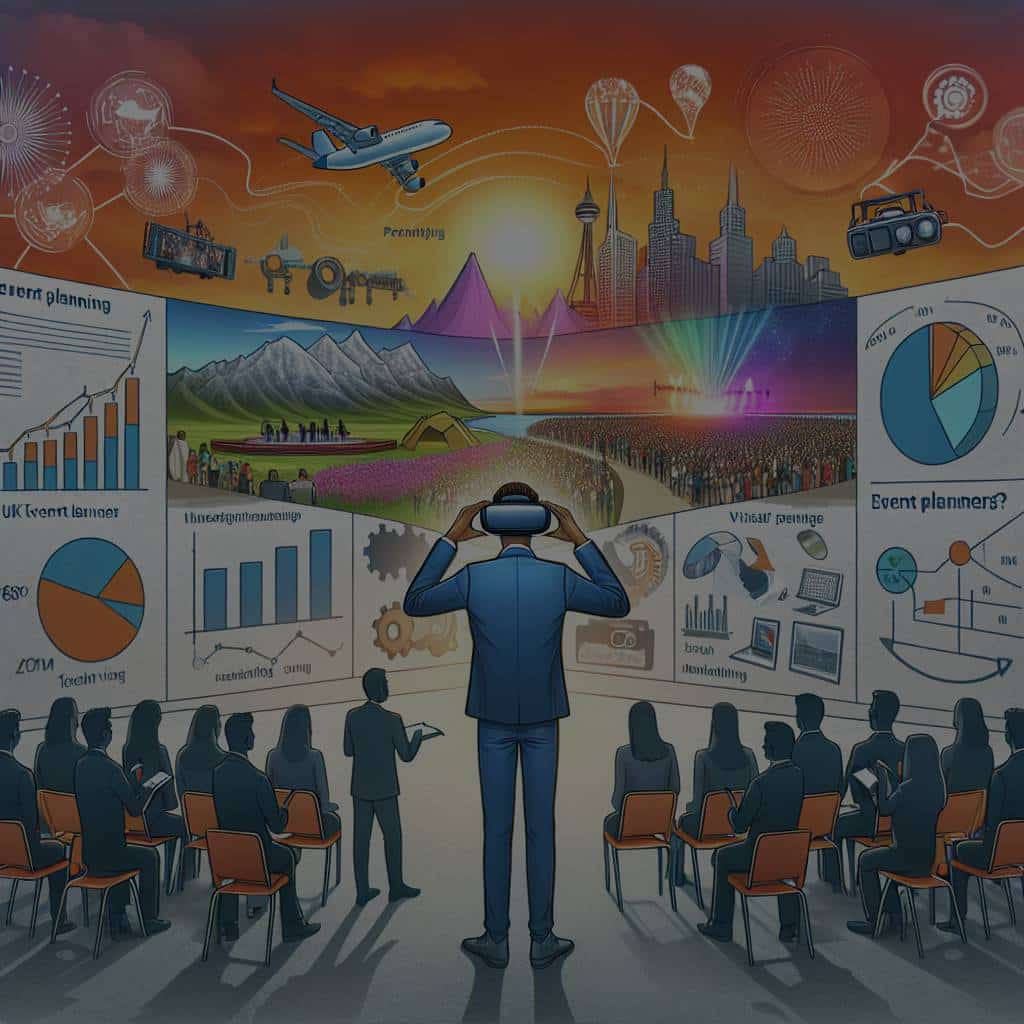How Can UK Event Planners Use Virtual Reality for Enhanced Experiences?

In the digital age, where technology is increasingly woven into our daily lives, the world of event planning is undergoing a dramatic transformation. New advancements are pushing the boundaries of what is possible, creating immersive experiences that blur the line between the virtual and the real. On the forefront of these advancements is virtual reality (VR). This technology is not just for gamers; it’s bringing an unparalleled level of interaction and engagement to events, changing the way attendees experience them.
Businesses and event planners in the UK are beginning to harness the power of VR to create unforgettable experiences for their audiences. So, how can they take advantage of this cutting-edge technology?
Topic to read : What Are the Legal and Ethical Considerations of AI in UK Recruitment?
The Power of Virtual Reality in Events
Virtual reality is a technology that creates immersive digital environments that are so realistic, they can trick the brain into believing they are real. This level of immersion can create truly unique experiences for attendees at events.
At its core, the success of any event hinges on the experience it provides to attendees. It’s not just about the content being presented, but how that content engages the audience. Traditional methods of engagement such as keynote speeches, Q&A sessions, and networking events are all well and good, but they can often fall short of creating a truly memorable experience. In contrast, VR can create a level of engagement that is simply not possible with traditional methods.
Also to discover : Optimise load security with advanced packaging machinery solutions
Creating Immersive Experiences with Virtual Reality
When attendees put on a VR headset, they are transported into a completely new environment. This environment can be anything the event planner desires, from a virtual representation of a real-world location to a completely fabricated digital landscape.
Virtual reality doesn’t just create immersive environments, it also offers a range of interactive possibilities. Attendees can interact with the digital world around them in a way that feels natural and intuitive. This interactivity can be used to create engaging activities and challenges for attendees, fostering a sense of competition and camaraderie.
When it comes to marketing events, virtual reality can be a powerful tool. By creating a VR preview of the event, businesses can give potential attendees a taste of what they can expect, sparking interest and driving ticket sales.
Virtual Reality’s Role in the Future of the Events Industry
It’s clear that virtual reality has the potential to revolutionise the events industry. The immersive and interactive nature of VR lends itself well to creating unique and memorable experiences for attendees. But what does the future hold for VR in the events industry?
As virtual reality technology continues to develop, we can expect to see even more innovative ways to incorporate it into events. With advancements in haptic feedback technology, attendees will be able to not only see and hear the virtual world, but also feel it. This will take the level of immersion to new heights, creating experiences that are even more engaging and memorable.
Bringing Virtual Reality to Your Events
So, how can UK event planners start incorporating virtual reality into their events? The good news is, it’s not as complicated or expensive as you might think.
There are a multitude of companies offering virtual reality rental services in the UK. These companies provide everything you need to bring VR to your event, including the headsets, controllers, and even the VR content. Some companies also offer custom VR content creation services, allowing you to create bespoke virtual experiences tailored to your event.
When deciding how to incorporate VR into your event, it’s important to keep the focus on creating a meaningful and engaging experience for attendees. The novelty of VR can be a draw in and of itself, but to truly make the most of this technology, it needs to be integrated in a way that enhances the overall event experience.
In conclusion, virtual reality holds great potential for transforming the way we plan and experience events. By creating immersive, interactive, and engaging experiences, VR is set to take the events industry by storm. For UK event planners looking to stay ahead of the curve, now is the time to start exploring the exciting possibilities this technology offers.
Leveraging Augmented Reality for Unforgettable Event Experiences
Augmented reality (AR) is another burgeoning technology that is closely related to virtual reality. While VR completely replaces the user’s real-world environment with a simulated one, AR overlays digital information onto the real world. This blend of virtual and real-time environments can be leveraged by event planners to enhance the event experience in unique ways.
Imagine an event where attendees can point their smartphones at a poster to bring it to life with animations or even a 3D model. Or a conference where attendees can access additional information about speakers or presentations through an AR app. This not only increases interactivity but also enables attendees to engage with the event content in a highly personalised manner.
Moreover, the combination of AR and social media can further enhance the event experience. Attendees can share their augmented experiences on social media platforms, effectively becoming ambassadors for your event. This not only amplifies your event’s reach but also creates a buzz around it, encouraging more people to attend in real time.
The applications of AR in the events space are virtually limitless. From AR treasure hunts to interactive exhibits, there are numerous ways to create memorable experiences for your attendees. Just like VR, integrating AR into your events requires careful planning and a focus on enhancing the overall event experience. However, the rewards in terms of enhanced attendee engagement and satisfaction are well worth the effort.
The Future of Event Technology: Beyond Virtual and Augmented Reality
While VR and AR are certainly transforming the events industry, they are just the beginning. The future of event technology is incredibly exciting, with advances in artificial intelligence, 5G and Internet of Things (IoT) poised to create even more immersive and personalised event experiences.
Artificial intelligence can be used to create personalised schedules for attendees based on their interests and preferences. 5G can enable seamless streaming of live events to attendees’ mobile devices, providing them with real-time access to event content no matter where they are. IoT can transform physical spaces into interactive environments, responding to attendees’ actions and preferences in real time.
Event technology is evolving at a rapid pace, and event planners need to stay abreast of these developments to remain competitive in the events space. This involves not just adopting new technologies, but also constantly revisiting and refining their event strategy to ensure that they are creating truly meaningful and memorable experiences for their attendees.
Conclusion
In the digital age, event planning is about much more than just organising a gathering of people. It is about creating immersive, engaging and memorable experiences that leave a lasting impact on attendees. Virtual reality and augmented reality are key technologies that are enabling event planners to achieve this goal.
However, it is important to remember that technology is just a tool. The real magic happens when event planners use these tools in creative and innovative ways to enhance the overall event experience. As we look to the future, it is clear that the convergence of technology and creativity will continue to drive the evolution of the events industry.
For UK event planners, the time to embrace these technologies is now. By doing so, they can not only stay ahead of the curve, but also create unforgettable experiences that will set their events apart in an increasingly competitive landscape. And ultimately, that is what event planning is all about – creating unique and memorable experiences that resonate with attendees long after the event is over.
